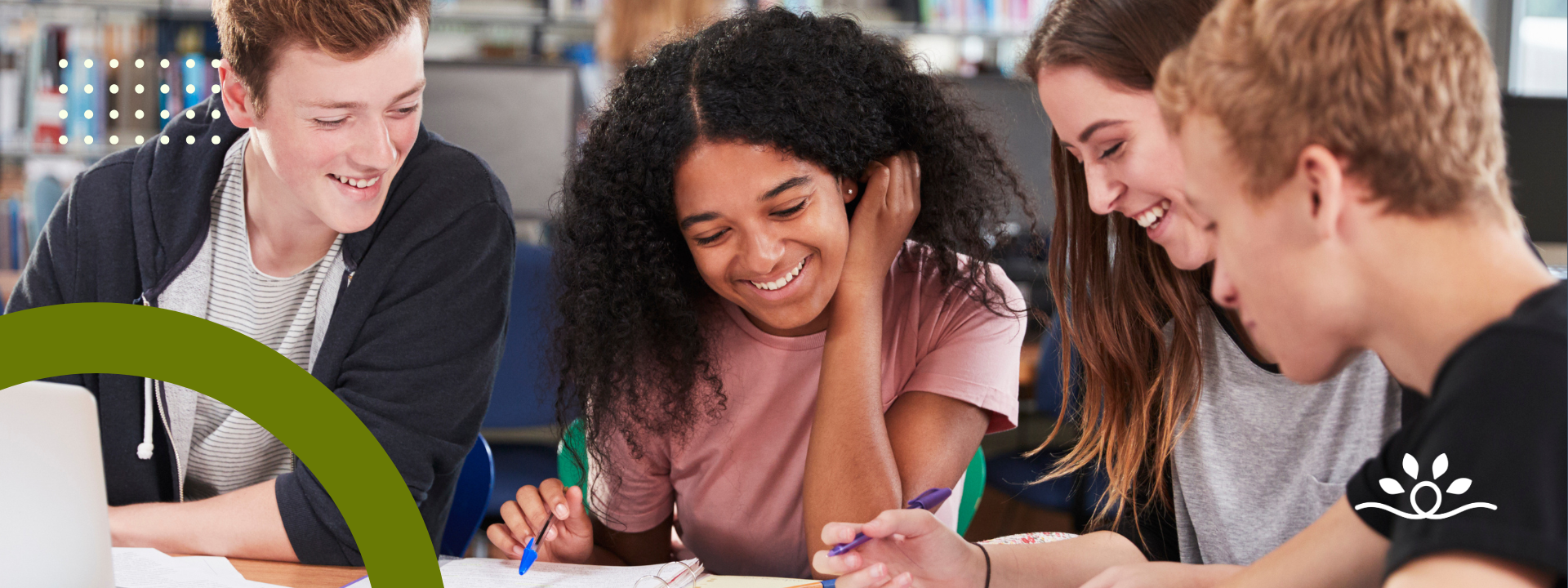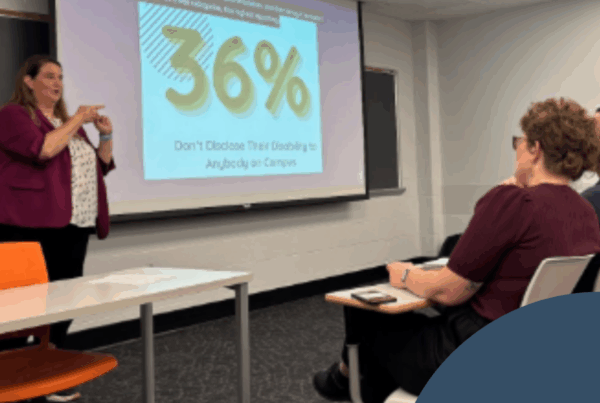Summary
The start of a semester is a chance to set strong foundations. From self-advocacy to energy management, small strategies can make a big difference in staying motivated and feeling supported. These student-tested tips highlight practical ways to balance academics and well-being.

Finding Your Rhythm at the Start of the Year
The beginning of a new semester can feel overwhelming, especially when adjusting to fresh classes, routines, and expectations. For many students with disabilities (and without), the first weeks are critical for setting up the systems, supports, and habits that help them succeed. The following recommendations—shared by students themselves and supported by research-backed practices—are designed to help ease the transition, promote motivation, and create a sustainable balance throughout the school year.
Connect with Your Professors Early
“Set up a meeting or send an email to your professor or mentor at the beginning of the semester and introduce yourself! Let them know you may need some extra assistance as the semester goes along. I find that professors are much more understanding when they get a heads up and this is great practice for advocating for yourself and your needs before the need even arises.”
Madeline O’Grady, Student Fellow at The National Disability Center for Student Success, College of Education.
This proactive step helps you establish relationships before challenges arise. It also signals to faculty that you’re engaged and invested in your success.
Stay Organized with Tools That Work for You
“Google Calendar is my go-to and holy grail for keeping my schedule organized. I also set up allotted times on my calendar to complete assignments and class materials. This helps me stay within a specific timeframe, so I don’t spend too much time on one task.”
Desiree Lama, Coordinator of Student Partnerships, Doctoral Student, College of Education.
Digital tools can help turn a busy semester into something manageable. Whether it’s Google Calendar, Apple Calendar, or even a paper planner, the key is to use a system consistently and stay organized.
Build Community and Peer Support
One of the most valuable resources on campus is other students. Peer networks—whether through student organizations, study groups, or disability cultural centers, offer not just academic support but also a sense of belonging. Building these connections early makes campus life less isolating and more encouraging.
Balance Energy, Not Just Time
“In general, I think it’s helpful to plan with energy, not just time. Meaning, a lot of people use calendars and schedules that are centered around hours. However, for students with disabilities, daily life often means managing fluctuating energy, pain, sensory overwhelm, or recovery time. One approach I’ve found that works is making both a “low-energy” and a “high-energy” version of daily plans. That way, you create space for both rest/recovery and personal time alongside academic responsibilities. If you wake up in a very low-energy mode or this occurs during the day, you still have a higher chance of completing essential tasks for school and self-care, because the plan already accounts for that flexibility.”
Nicole Garcia, Student Fellow at The National Disability Center for Student Success, Cockrell School of Engineering.
Energy-centered planning helps ensure you don’t overcommit. It also makes success possible on both your best and toughest days.
Navigate Accommodations Proactively
“Professors—and disability support services—are there to help you! Regardless of if you’re reaching out with or without formal documentation, communicate your needs as clearly as possible and be open on how to meet them. Remember that each class is different, and even university-sanctioned accommodations aren’t one-size-fits-all. Staff and faculty are human, just like we are. So, reach out early and aim to collaborate. You are resilient!”
Soren Aldaco, Student Fellow at The National Disability Center for Student Success, College of Liberal Arts.
Every course may look different, which makes communication essential. Approaching instructors early allows time to find solutions and ensures you’re not scrambling mid-semester.
Prioritize Rest and Wellness
College life often encourages late nights and constant activity, but rest is non-negotiable. Whether it’s scheduling breaks between classes, finding quiet study areas, or maintaining a consistent sleep routine, protecting your health directly supports your academic success.
Celebrate Small Wins
Progress doesn’t always mean acing every assignment. Sometimes it’s making it to class on a tough day, finishing a reading, or asking for help when you need it. Recognizing and celebrating these moments builds resilience and keeps motivation high throughout the semester.
What to Remember?
Starting a new academic year is both exciting and challenging. The tips above, shaped by student voices and practical strategies, remind us that success in higher education isn’t about perfection—it’s about building systems, using available supports, and giving yourself permission to thrive.


